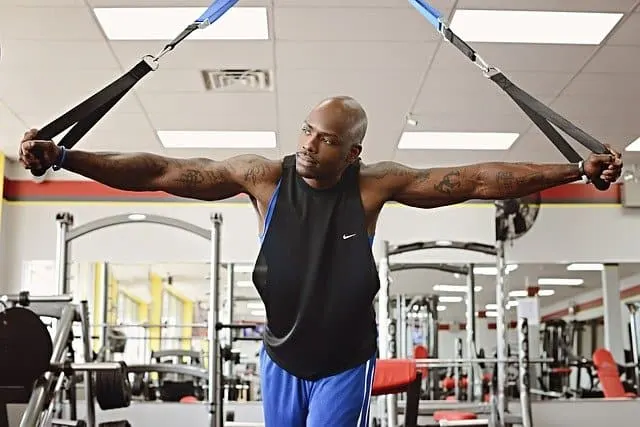
If you are studying for your NSCA CSCS exam, you have come to the right place. When pursuing a certification from the National Strength and Conditioning Association (NSCA), you must first pass a rigorous examination. Here we are going to discuss everything you need to know about becoming a Certified Strength and Condition Specialist and how to best prepare for your exam. Keep reading to find out more.
What is the NSCA CSCS Exam?
If you are preparing for an upcoming exam, you most likely know some of what this test entails. For those who are unfamiliar, the CSCS exam is a four-hour long test that can be taken with pencil and paper or on a computer. The exam is split up into two sections: scientific foundations and practical/applied knowledge. It is considered to be one of the most challenging certification exams in the fitness industry. This is based on its low pass rate of 57%. The reason it is so challenging is because you are not just seeking an average personal training certification. Passing this exam shows that you have achieved a higher-level credential that requires you to demonstrate advanced knowledge about training and science as it pertains to professional athletes. This differs from a standard personal training certification where you will only be working with the general population for typical health and wellness purposes.
What is Required?
In order to take the CSCS test, you will need to have at least a bachelor’s degree. As it stands currently, you do not need to have your degree in any specific field of study. However, by 2030 the NSCA plans to require a bachelors with a specific focus on strength and conditioning. You will also need a current CPR and AED certification.
How to Prepare
If you are ready to take your exam, the first thing you’ll want to do is read the NSCA certification handbook. You can find this for free on their website. This handbook will go over the exam in more detail. It has everything you need to know about the format of the exam including prerequisites, a detailed outline, explanations of CEU requirements, and just about anything else you need to be aware of.
Once you have read the handbook on the NSCA website you will want to pick up a CSCS study guide. The NSCA CSCS textbook can be overwhelming. At over 650 pages, many people fail this exam on their first try because the textbook is jam-packed with information. Talk about an information overload. While the textbook is a great point of reference when preparing for the exam, a study guide will help you better understand and retain the information that you need to pass.
Another great way to prepare for the exam is by taking practice tests. Some study guides come with practice tests, but you can also find different practice tests online. There is also an abundance of videos and articles that you can watch or read that were created by people who have already taken and passed the exam. Try and listen to those who have gone before you to get the best idea of what you are in for.
How Much Time Does it Take to Prepare?
When it comes to study time, the NSCA website has some suggestions on how much time you should dedicate to preparing for the exam. They break it down into four categories of people, the first being those who have an exercise science related degree and practical experience. The recommendation for people who fit into this category is three to six weeks of prep time. If you have the exercise science related degree, but no practical experience, then you want to take three to six months to prepare appropriately. Those with an unrelated degree and practical experience should designate four to six months to prepare for the exam, and those who have neither a related degree or experience need six to nine months. Ultimately, it is up to you to know how much time you need as an individual based on study habits, level of experience, and test taking abilities.
Taking the Exam
Once you have studied all your materials and taken your practice tests, you should be ready to complete your NSCA CSCS exam. As long as you take the appropriate time to prepare and follow some of the tips that we have listed here, you are sure to have a great chance at success. Good luck to everyone who plans to become a Certified Strength and Condition Specialist in the new year!
- Sagittarius Man & Gemini Woman Love and Sex Compatibility - January 31, 2024
- Taurus Ascendant Rising Personality Traits in Men (Guide) - January 31, 2024
- How to Seduce and Attract a Sagittarius Man (Seduction Tips) - January 31, 2024
